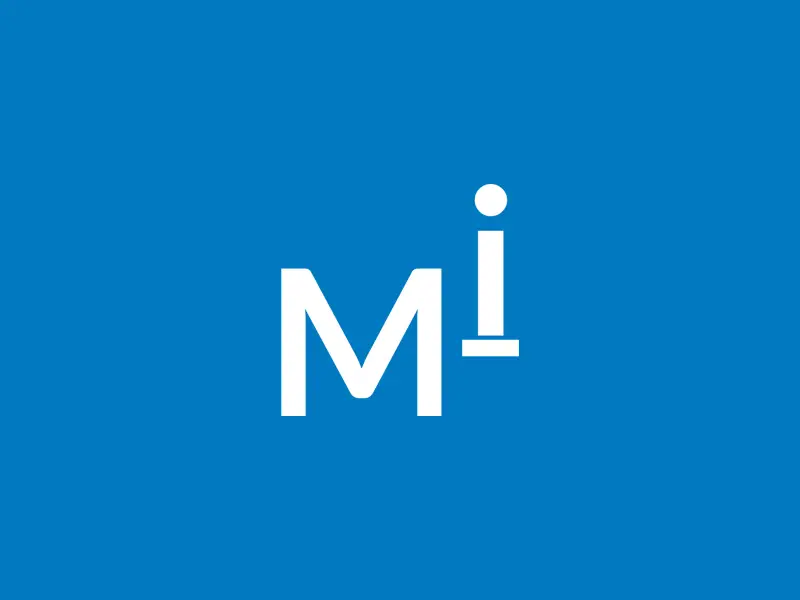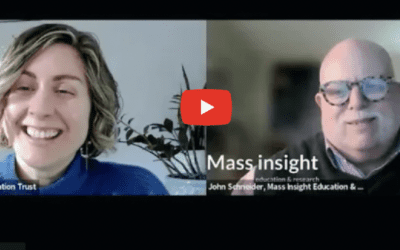Ms. Wolfe succeeds Dr. Susan Lusi, who will step down in June after leading the national nonprofit for eight years. April 18, 2024 – The Board of Directors of Mass Insight Education & Research has named Andrea Wolfe as the next President & CEO of the...
Design Principles for Successful Improvement Networks: Lessons from the Field
At Mi, we continue to learn about what it takes to successfully lead and support the work of improvement networks. The networks call for the convening of practitioners, researchers, and others to collectively address persistent problems of practice they identify as pressing, develop a theory on how to improve them, and implement and test change ideas through rapid cycles of inquiry.
In the last month, I have been talking to generous thought partners from exemplary networks in different parts of the country and reviewing some literature about networked improvement. Through this work, I have distilled several design principles that guide successful networks and build upon our prior experience with the Gateway to College Success improvement network:
- Building trusting relationships is fundamental to network formation and development. No one is willing to do the challenging work of engaging in serious practice examination unless they trust the others involved in the network and the people leading the work.
- Elevating students’ and teachers’ voices contributes to a better understanding of the problem at hand and the proposed solutions. The analytic work of a network shouldn’t be limited to tracking progress towards expected outcomes. Collecting information on students’ and/or teachers’ experiences and perceptions can be instrumental to the understanding of a problem’s root causes and the potential ways of improving it.
- Meeting schools where they are at with their own data management is more productive than imposing universal systems across the board. A central portion of a network’s work is about understanding data. School districts’ data infrastructure varies a great deal. They have different platforms and degrees of sophistication in their data management. The hub facilitating the network needs to understand this variation and adapt its own data management systems and scaffolding supports accordingly.
- Providing on-going coaching is needed in networked improvement work. The hub’s facilitation not only requires organizing the network work but closely accompanying network members in the implementation of change ideas and monitoring progress on selected indicators. This usually means that hubs take on coaching roles with different levels of intensity depending upon their capacity.
- Adding value is a must. Because the improvement work in a network can become time and energy consuming, networks need to have a serious competitive advantage over other plausible improvement strategies, in order to sustain the membership and the flow of the work. Network hubs can help articulate a narrative regarding the particular value of the network they facilitate.
- Changing mindsets is permanent work in the network. Improvement networks embody a different paradigm for stakeholders. Through their network participation, members can shift their own perception about students, teachers, families or themselves and gradually develop confidence that the improvement processes they engage in can yield positive results.
Stay tuned for additional lessons we will continue to learn and share as we advance our network work!

Recent Posts
Mass Insight Launches New Service to Tackle Chronic Absenteeism
The Targeted Intervention: Chronic Absenteeism will take a community-based exploratory approach to understanding the experiences of chronically absent students and efforts to increase student attendance. March 18, 2024 – Mass Insight Education & Research...
An Interview with Kristen Hengtgen of The Education Trust
https://youtu.be/1ZfxNShHJOU?si=d1a1GoVrgrDWT5Cu Kristen Hengtgen, Ph.D. is a senior analyst on The Education Trust's P-12 policy team and co-author of their new report, Increasing Access to Advanced Coursework in Massachusetts. In this interview, she joins Mass...
You may also like
An Interview with Kristen Hengtgen of The Education Trust
https://youtu.be/1ZfxNShHJOU?si=d1a1GoVrgrDWT5Cu Kristen Hengtgen, Ph.D. is a senior analyst on The Education Trust's P-12 policy team and co-author of their new report, Increasing Access to Advanced Coursework in Massachusetts. In this interview, she joins Mass...
Creating the conditions for greater success of systemically disadvantaged students in AP: Next steps for the Massachusetts AP STEM & English program
Recently the New York Times published an article entitled, Why is the College Board Pushing to Expand Advanced Placement? The article focuses on an important issue: there’s been greater growth in AP participation for Black and Latino students and students living in...
Recentering Our Communities in School Transformation: An Equity-First Approach
This is the final post in Mi’s Revisiting the Turnaround Challenge blog series. In Revisiting the Turnaround Challenge, we examined the outcomes of three “turnaround zones” implemented by urban public school districts in partnership with Mi between 2012-2019. Our goal...


